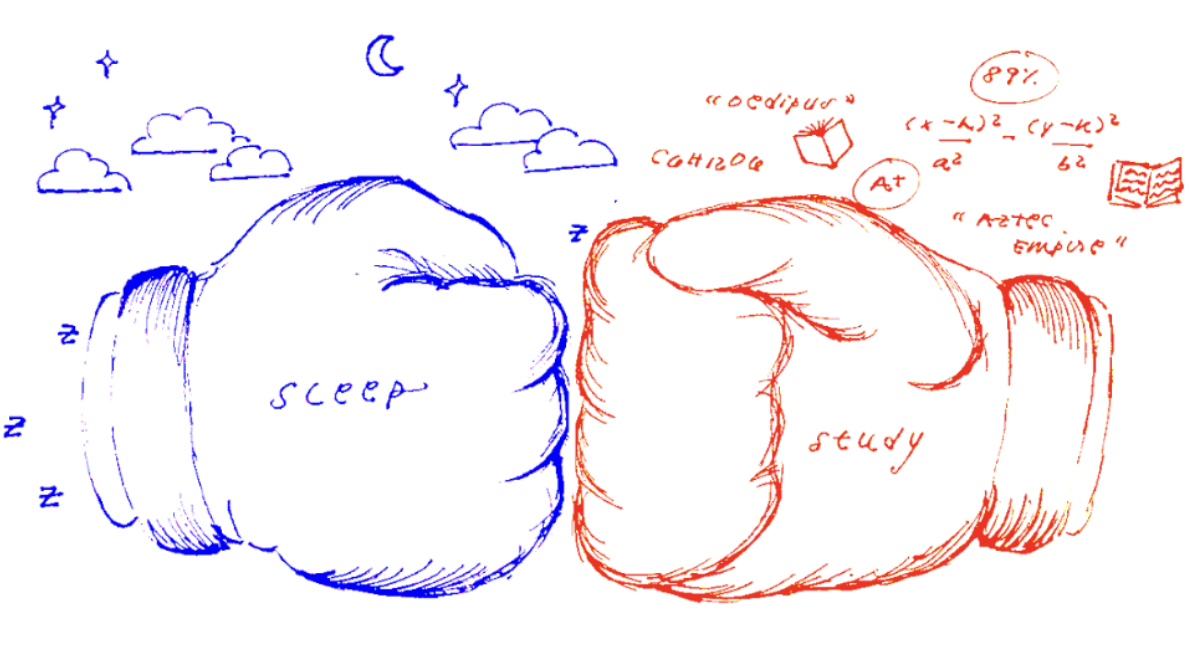How many hours of sleep do you get each night?
It’s a frequently asked question that reveals the normalization of unhealthy sleep schedules. Before coming to Groton, I struggled with maintaining a strict bedtime and watched as 10:00 p.m. quickly turned to midnight. Given the strict 10:30 lights out for Third Formers, I was expecting a refreshing change at Groton. Would everyone sleep for eight hours or more every night?
Sadly, I soon found my expectations dashed. Formmates of mine stayed up after midnight and set alarms at five in the morning to finish homework. It seemed to be the same cycle I’d seen at my old school with no way to escape.
Head of Active Minds Eliza Kingsland ’25 says that sleep and time management are frequently mentioned topics during club discussions.
“Conversations about sleep can turn into who has it worse,” she explains, “which creates a really toxic culture.”
Eliza has observed classmates “glorifying struggles” and using lack of sleep to prove their dedication to academics. Sleep deprivation is just one aspect of the Groton culture that ruthlessly emphasizes academics above all else.
According to the Centers for Disease Control, teenagers should get eight to 10 hours of sleep per night. A Third Form Groton student has lights out at 10:30 and chapel at eight, so even the most efficient person can only get at most eight to nine hours of sleep.
When academics cannot compromise, sleep is sacrificed, reducing this time even more. As an article from the National Institute of Health notes, “The pace of modern life . . . can make getting a good night’s sleep on a regular basis seem like a dream.” As soon as one finishes their assignments, the next day is upon them, and it’s easy to quickly fall into a cycle of never truly being done with work.
Groton has a serious sleep problem. What can we really do about it?
“The only way to change a culture is to start [with] yourself,” says Eliza.
Before Groton students can focus on getting more sleep, we need to change our own mindset about sleep first. Instead of boasting about sleep deprivation or brushing it off, we should direct the conversation in a healthier direction. When someone complains about an overload of assignments and how they have to stay up late, we should discourage these habits rather than praise them.
The Groton student body needs to understand that sleep deprivation should not be the easy way out of finding time to do work. Instead, the key is to find little moments in between meetings and use all of the time that you have.
For Third Formers, Eliza recommends a form of multitasking.
“One of the major parts of my Third Form year was the booths between 6 and 8:30 p.m,” she says.
Instead of blocking out time to either socialize or work, Eliza suggests that students can do assignments with friends and have company while being productive. Only through such efficient time management can we truly begin to change sleep culture at Groton.








